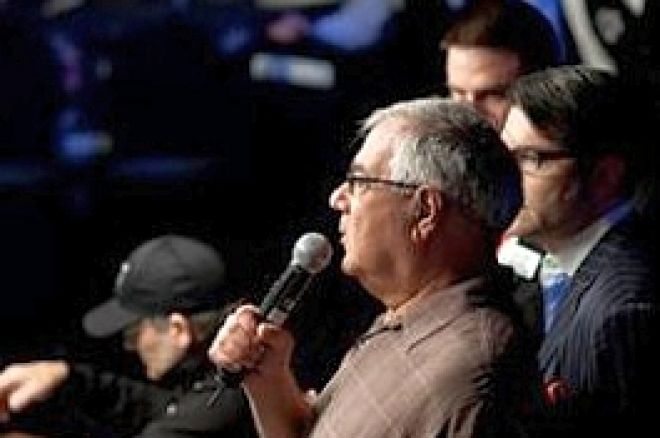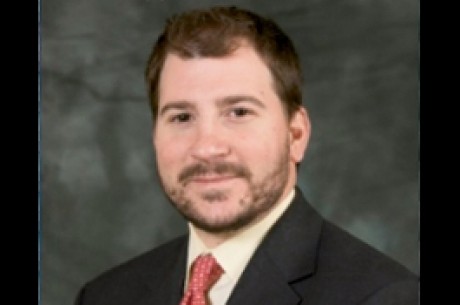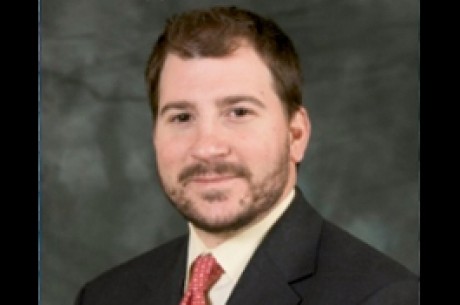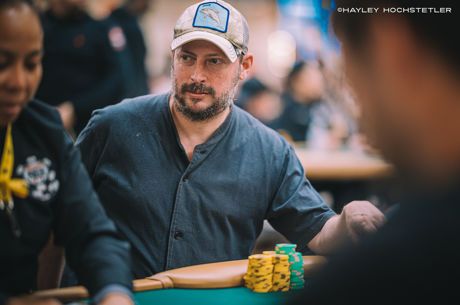Rep. Barney Frank Promotes Pro-poker Platform in WSOP Visit

United States Congressional Representative Barney Frank (D-MA), has been praised by the United States poker industry of late for his work in attempting to undo the damage caused by the US’s 2006 Unlawful Internet Gambling Enforcement Act (UIGEA). The UIGEA was inserted surreptitiously into a must-pass port-security act that passed Congress on a voice vote, in a nod to the conservative/religious far right by then-Senate Majority leader Bill Frist (R-TN), who used the tactic to buttress possible political support for a soon-to-fail Presidential bid.
The UIGEA, which Frank has repeatedly described as the stupidest bill in American history, has fallen under two separate areas under Frank’s purview. First, the UIGEA, which despite persistent claims to the contrary, says nothing about the playing of poker or any other online games; instead, it attacked the payment systems and banks (online payment processors), in the process instituting an unfunded mandate to police a category of transactions – with that category’s legality itself not defined or clarified – and thereby imposing a collective expense on America’s banking industry that could run into the hundreds of millions of dollars. The banking industry’s reserved outrage over the bill bubbled through in hearings held by Congressman Frank’s powerful House Financial Services Committee. Second, Frank has derided the UIGEA as an attack on American’s civil liberties and an affront to those who believe in personal freedoms.
Frank’s visit to the Rio and the World Series of Poker on Sunday involved a bit of ceremony – he was the guest for the Main Event Day 1c call of “Shuffle up and deal!” (photo) – but he also participated in a brief media conference over poker’s regulatory issues, held in a private suite an hour later. Frank’s visit to the WSOP was coordinated through the Poker Players Alliance, which has actively supported two measures currently up before this session of Congress. Frank’s H.R. Bill 2267, the Internet Gambling Regulation, Consumer Protection, and Enforcement Act of 2009, and Frank’s separate HR Bill 2266, the stopgap Reasonable Prudence in Regulation Act, which seeks to delay UIGEA implementation, scheduled in full at the end of 2009, for at least another calendar year. After a previously announced delay, Frank clarified that he expects progress on both bills later this year.
Frank greeted an extremely small gathering of poker media at the press event, noting his own shocked discovery at the way the UIGEA was introduced and passed, noting that it was “a terrible idea, that we would just gratuitously reach out and interfere with people’s freedom.” Frank termed the UIGEA an “extraordinary interference,” not only in American’s overall civil liberties, but in terms of how they access and use the Internet. Said Frank, “Any society that prohibits adults from doing something because there’s a chance children might do [the same activity] is not a free society.”
Frank continued by detailing the introduction of his own first version of the bill, the Internet Gambling Enforcement and Regulation Act (IGREA), which died in committee in 2008 in the face of what Frank termed a “certain veto” by President Bush. Frank chastised his political opponents for trotting out arguments such as money laundering and drug smuggling in defeating his bill, stating that no, it was just a case of the other politicians being determined to tell Americans how they could and should spend their own money, and that “gambling is somehow immoral and wrong, etcetera.”
Frank, though, made it clear that the largest problem caused by the UIGEA was the onerous mandate placed upon the banking industry, already besieged by the much larger issues surrounding the housing and credit-market crisis.
“It’s odd that we say ‘no gambling’,” continued Frank, getting in a swipe at both the UIGEA and the Republican leadership that enacted the UIGEA, “because the country is in a terrible economic hole because of gambling. The difference is that the law that was passed by the Republicans stops individuals from gambling in the thousands with their own money. At the same time they were allowing institutions to gamble in the billions with other people’s money.”
In response to one question, Frank questioned whether the recent seizure of some $40 million connected to individual players’ online poker funds, asserting instead that it was likely Bush Administration holdovers at the Department of Justice’s Southern District of New York who initiated the action.
Frank also acknowledged, in a question from this writer, that separate timelines may evolve for his two bills. “They might be [on distinct timelines],” stated Frank. “If I could get the whole thing done right away, I would go right to that – a total repeal. But it may be that it’s going to take a little longer, in which case getting the [UIGEA] regulations suspended while we work on the broader bill could be useful, especially since we want to show people on the broader bill that it’s feasible to have the regulatory scheme in place.”








